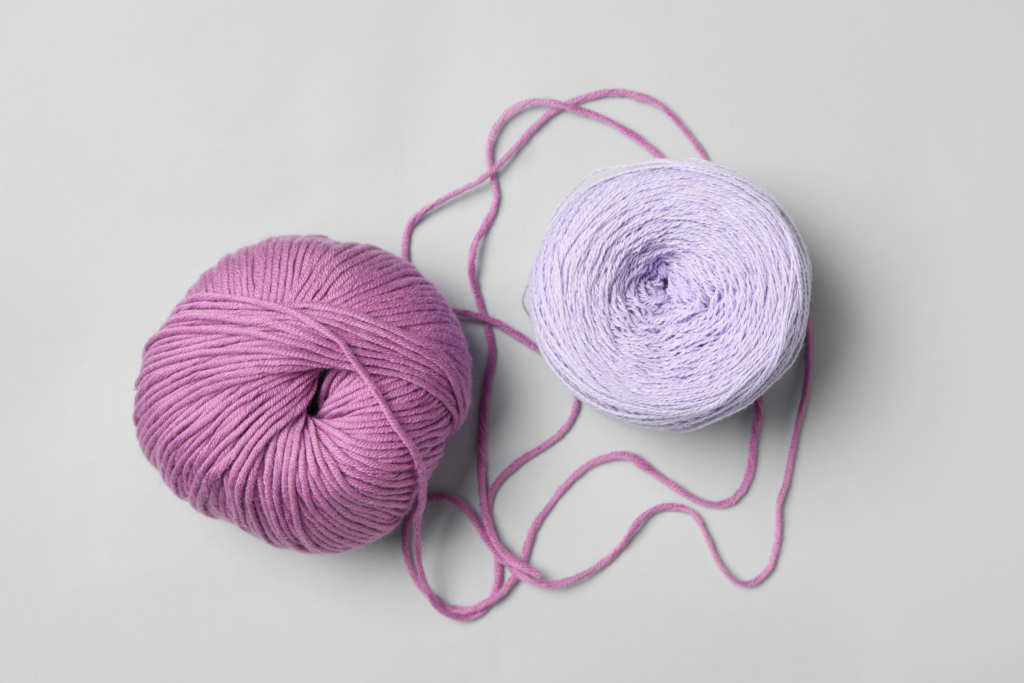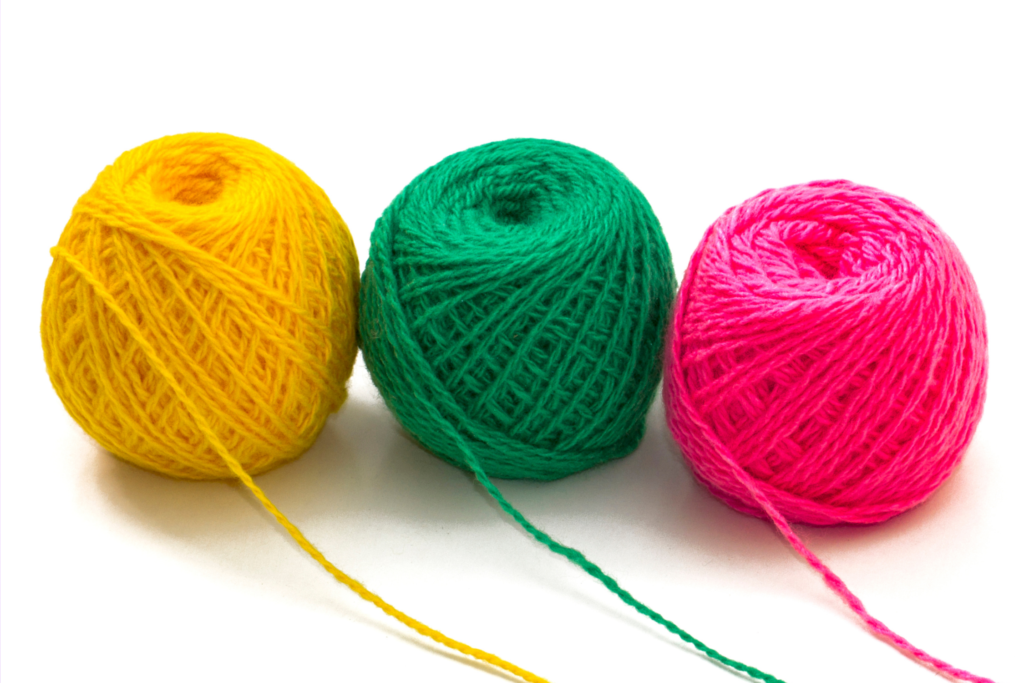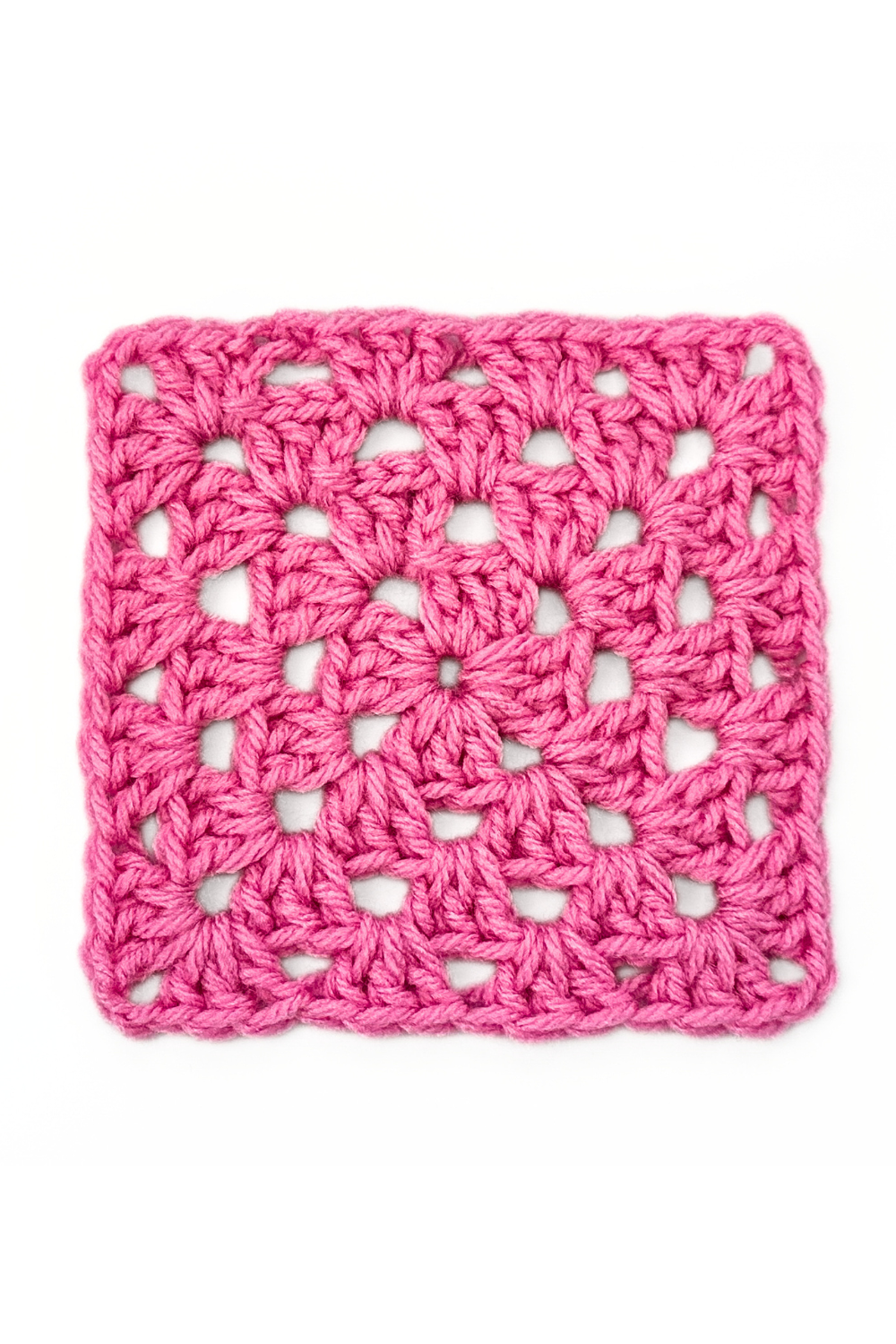Understanding the differences between yarn and crochet thread is essential for fiber artists, whether they are new to the world of crochet and knitting or seasoned experts.
The primary difference between yarn and crochet thread lies in their texture, thickness, and usage. Yarn is thicker, fluffier, and more versatile, suitable for a wide range of projects like garments, accessories, and home decor items. In contrast, crochet thread is thinner, smoother, and more delicate, making it ideal for intricate crochet work such as lace, doilies, and fine embellishments.
In this article, we will explore the world of yarn and crochet thread, discussing their differences in texture, thickness, color range, usage, and care instructions. Additionally, we will delve into the mercerization process that is often applied to crochet thread but not yarn.
Yarn
Yarn is a long continuous length of interlocked fibers, typically used in knitting, crochet, weaving, and other textile crafts. It comes in various materials, thicknesses, and textures.
For more detail on types of yarn for crochet, check out our articles:
The Benefits of Wool Yarn for Crochet
Best Cotton Yarn for Crochet: The Complete Guide
Is Acrylic or Cotton Yarn Better for Crochet?
Types of Yarn
There are many types of yarn available, but for simplicity, we will focus on the most common types: wool, cotton, acrylic, and blends.
Wool
Wool is a natural fiber obtained from the fleece of sheep, alpaca, or other animals. It is warm, soft, and breathable, making it ideal for garments and accessories.
Cotton
Cotton is a natural fiber made from the cotton plant. It is lightweight, breathable, and has excellent moisture absorption, making it perfect for warm-weather garments and home accessories.
Acrylic
Acrylic yarn is a synthetic material made from polymer fibers. It is affordable, lightweight, and easy to care for, making it a popular choice for beginners and those looking for low-maintenance projects.
Blends
Blended yarns combine two or more fiber types, offering the best of both worlds. These blends can include wool and acrylic, cotton and polyester, or other combinations, providing a balance of texture, durability, and ease of care.
Crochet Thread

Crochet thread is a finer, more delicate type of yarn specifically designed for crochet work. It is commonly used for lace, doilies, and other intricate projects.
Types of Crochet Thread
Crochet thread is available in various materials, including cotton, synthetic, and specialty threads.
Cotton Thread
Cotton crochet thread is made from 100% cotton fibers, offering a smooth texture and high tensile strength, ideal for creating delicate and intricate designs.
Synthetic Thread
Synthetic crochet thread, made from materials like nylon or polyester, offers a wide range of colors and is more resistant to wear and tear than cotton thread.
Specialty Thread
Specialty threads, such as metallic or variegated threads, add unique visual elements to your crochet projects, allowing for more creative and eye-catching designs.
Mercerization Process
Mercerization is a chemical process applied to cotton fibers, including crochet thread, to improve their properties. The process involves treating the cotton fibers with an alkali solution, typically sodium hydroxide, under tension. This treatment results in several benefits:
- Increased strength and durability
- Improved luster and sheen
- Enhanced dye absorption, leading to more vibrant and long-lasting colors
- Reduced shrinkage
While mercerization is common for crochet thread, it is not typically applied to yarn. Mercerized crochet thread offers a more polished and professional appearance, making it ideal for projects that require a smooth, glossy finish.
Differences Between Yarn and Crochet Thread

Understanding the differences between yarn and crochet thread is crucial in selecting the right material for your projects.
Texture
Yarn typically has a more fluffy and soft texture compared to crochet thread, which is smoother and more tightly twisted. The texture of yarn can vary depending on the type of fiber used, while crochet thread is generally consistent in its smoothness, especially when mercerized.
Thickness
Yarn comes in various thicknesses, referred to as “weights,” ranging from very thin (lace weight) to very thick (super bulky). Crochet thread, on the other hand, is much finer and available in numbered sizes. The higher the number, the thinner the thread, with sizes generally ranging from 3 to 100.
Color Range
Both yarn and crochet thread come in a wide variety of colors, but yarn often has a broader selection of shades and hues. Additionally, yarn is more likely to be available in variegated or self-striping options, while crochet thread typically has fewer multi-colored options. Mercerized crochet thread, however, tends to have more vibrant and long-lasting colors due to its enhanced dye absorption.
Usage
Yarn is versatile and can be used for various projects, including garments, accessories, and home decor items. Crochet thread, being thinner and more delicate, is best suited for intricate crochet work like lace, doilies, and fine embellishments. Mercerized crochet thread is ideal for projects requiring a polished, professional finish.
Care Instructions
Yarn and crochet thread may have different care instructions depending on the fiber content. For example, wool yarn may require hand washing and air drying, while acrylic yarn is often machine washable and dryable. Cotton crochet thread may be machine washed but should be air-dried to maintain its shape and strength. Mercerized crochet thread is typically more resistant to shrinkage and color fading. Always follow the care instructions on the label to keep your finished projects looking their best.
Conclusion
In conclusion, the main differences between yarn and crochet thread lie in their texture, thickness, color range, usage, and care instructions. The mercerization process further differentiates crochet thread, adding benefits like increased strength, improved sheen, and enhanced color vibrancy. Understanding these differences will help you choose the right material for your projects, ensuring a successful and enjoyable crafting experience. So, the next time you embark on a crochet or knitting adventure, keep these distinctions in mind to make the best choice for your work of art.
FAQs
1. Can I use mercerized crochet thread in place of non-mercerized thread?
Yes, you can use mercerized crochet thread as a substitute for non-mercerized thread. However, keep in mind that mercerized thread has a smoother texture, more vibrant colors, and increased strength, which can affect the finished project’s appearance and feel.
2. Is mercerized crochet thread more expensive than non-mercerized thread?
Mercerized crochet thread may be slightly more expensive than non-mercerized thread due to the additional processing it undergoes. However, the benefits of increased strength, improved sheen, and enhanced color vibrancy often make it worth the investment.
3. Can I mix mercerized and non-mercerized crochet thread in the same project?
Yes, you can mix mercerized and non-mercerized crochet thread in the same project. However, be aware that there may be differences in texture, sheen, and color vibrancy between the two types of thread, which could affect the finished project’s appearance.
4. How do I choose the right crochet thread for my project?
Consider factors such as the desired texture, thickness, color, and care instructions when selecting crochet thread. If you require a polished, professional finish or more vibrant colors, opt for mercerized crochet thread. Always follow the pattern guidelines or recommendations for the best results.
5. Can I use yarn in a project designed for crochet thread or vice versa?
While it is possible to substitute yarn for crochet thread or vice versa in some cases, it’s essential to consider the desired outcome. The texture, thickness, and drape of the finished piece may be significantly different if you use the wrong material. It’s crucial to adjust the hook or needle size and gauge to ensure a proper fit if substituting materials.
-
Garden Fairy Crop Top FREE Crochet Pattern
Want the full AD-Free, printable PDF version of this pattern? Click here to get it on Etsy The Garden Fairy Top is a fantastical and…
-
Easy Crochet Granny Square Pattern + Video Tutorial
Mastering the crochet granny square is a great way to build your crochet skills while creating a timeless design that’s perfect for a wide variety…

